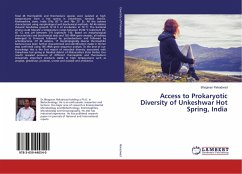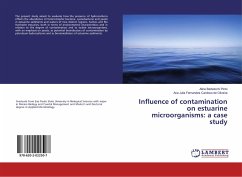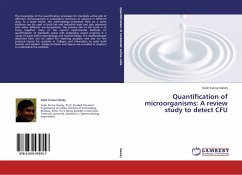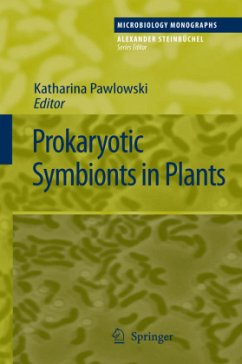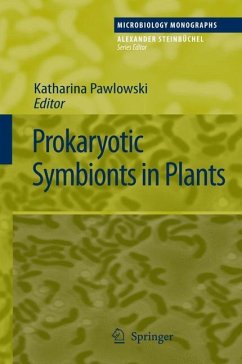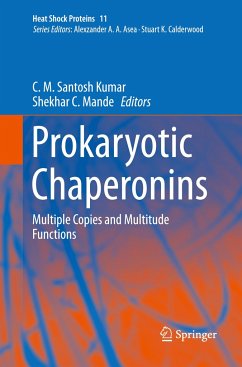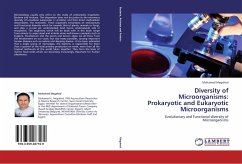
Diversity of Microorganisms: Prokaryotic and Eukaryotic Microorganisms
Evolutionary and Functional diversity of Microorganisms
Versandkostenfrei!
Versandfertig in 6-10 Tagen
52,99 €
inkl. MwSt.

PAYBACK Punkte
26 °P sammeln!
Microbiology usually only refers to the study of prokaryotic organisms: Bacteria and Archaea. This disposition does not do justice to the enormous diversity of unicellular eukaryotes (= protists), and their direct multicellular descendants, the seaweeds. These organisms encompass an evolutionary and functional diversity which far exceeds that of plants, animals or Fungi, and play a crucial yet understudied (and hence undervalued) role in ecosystems. The organisms which will be dealt with in this book range from minute to super-sized and include some well-known examples such as Euglena, Paramec...
Microbiology usually only refers to the study of prokaryotic organisms: Bacteria and Archaea. This disposition does not do justice to the enormous diversity of unicellular eukaryotes (= protists), and their direct multicellular descendants, the seaweeds. These organisms encompass an evolutionary and functional diversity which far exceeds that of plants, animals or Fungi, and play a crucial yet understudied (and hence undervalued) role in ecosystems. The organisms which will be dealt with in this book range from minute to super-sized and include some well-known examples such as Euglena, Paramecium and the green and brown algae we all know from the breakwaters on our coast, but also many parasites, causing important human diseases such as malaria and sleeping disease. It has been estimated that a single group of microalgae, the diatoms, is responsible for more than a quarter of the total primary production on earth, more than all the tropical rainforests of the world taken together. They form the basis of marine food webs which are becoming increasingly important for human subsistence.





